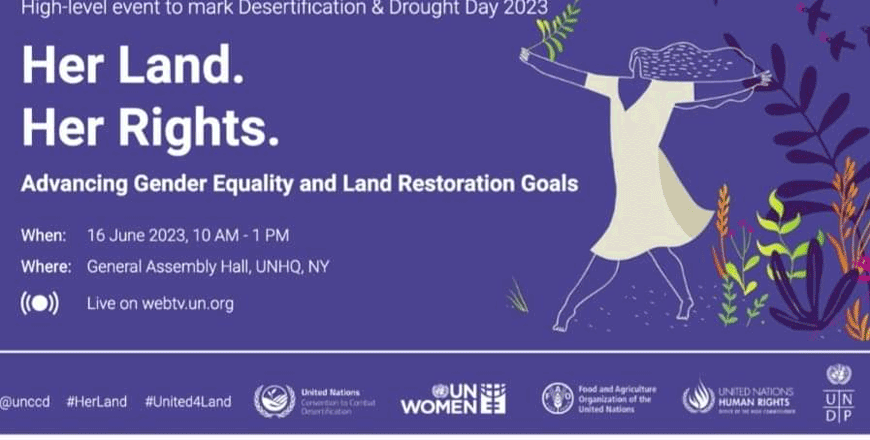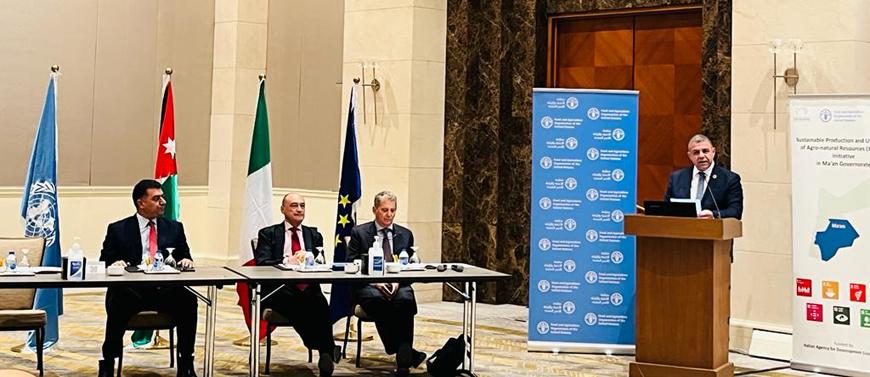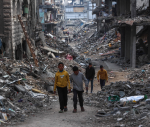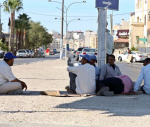You are here
Panel discussion calls for sustainable solutions to combat desertification, drought
By Mays Ibrahim Mustafa - Jun 20,2023 - Last updated at Jun 20,2023
AMMAN — Local and regional experts on Sunday participated in an online panel discussion on the challenges and potential solutions to desertification and drought in the Middles East and North African (MENA) region, including Jordan.
Under the title “Sustainable Land Management towards Strengthening Resilience: Combating Desertification and Drought”, the session was organised by the Dibeen Association for Environmental Development, in cooperation with the Housing and Land Rights Network (HLRN), which is the arm of the Habitat International Coalition (HIC) specialised in human rights.
Hala Murad, head of the Dibeen Association for Environmental Development, said that studies show that 11 of the 17 most water-stressed countries in the world are in the MENA region.
This highlights the importance of joining efforts to arrive at “sustainable solutions” to combat desertification and drought in order to offer next generations a better future, she added, noting the need for “urgent” action in a time when the region is witnessing increased climate challenges as well as wars and conflicts.
Islam Al Maghayrah, a member of the Jordanian Society for Desertification Control and Badia Development, noted that aside from natural processes and challenges related to climate change and water scarcity, desertification can be induced by human activities.
These include flaws in the implementation of environmental legislation as well as unsustainable farming practices leading to the erosion of soil, Maghayrah said.
Hadeel Qatamin, a monitoring and evaluation expert at BORDA (The Bremen Overseas Research and Development Association), an NGO that specialises in sanitation and urban development, also spoke during the session.
She noted that although Jordan has strong legislation related to land use management, there remain gaps in implementation.
The uncontrolled urban expansion in Amman has led to the disintegration of rainfed lands, increasing the risks of desertification and flooding, she added.
According to Qatamin, Jordan’s comprehensive land use blueprint has not been updated in almost two decades. She also pointed out that determining action priorities requires mapping desertification in Jordan.
‘Her land. Her rights’
Desertification and Drought Day is annually observed on June 17. This year, it was celebrated under the title: “Her Land. Her Rights: Advancing Gender Equality and Land Restoration Goals”.
According to Murad, the Gender and Land Rights Database issued by the Food and Agriculture Organisation (FAO) shows that women owned less than 5 per cent of agricultural land in Jordan according to the available Agriculture Census data.
She also noted that women currently account for roughly 70 per cent of farmers in the Jordan Valley.
Ahmed Mansour at the HIC noted that gender-related challenges in the MENA region’s agriculture go beyond land ownership and include the ability to access and manage resources.
Thabeyya Ghazzawi, a farmer in the Jordan Valley, noted that barriers faced by female farmers in Jordan include insufficient occupational safety and health measures, the absence of social security and health insurance schemes in addition to a lack of safe transportation.
Related Articles
AMMAN — The Arab Group for the Protection of Nature (APN) has planted 1,112 trees at Al Hussein Youth City in Amman to restore the forest af
AMMAN — The Ministry of Environment on Saturday joined the international community in celebrating the World Day to Combat Desertification an
AMMAN — The Government of Italy and the Food and Agriculture Organisation of the United Nations (FAO), in cooperation with the Ministry of A



















